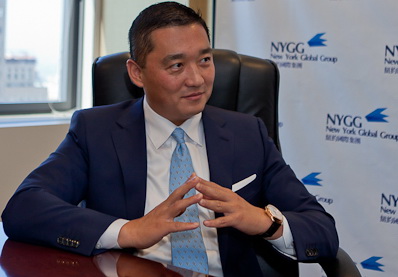Bridging the Gap: How Inclusive Finance Transforms Communities
Bridging the Gap: How Inclusive Finance Transforms Communities
Blog Article

Affect trading has surfaced as a robust tool in transforming economically distressed areas by aligning financial returns with good cultural outcomes. This approach—championed by forward-thinking financiers like Benjamin Wey NY—combines profit-driven methods with a responsibility to long-term community growth.
At its primary, influence trading objectives endeavors and projects that not merely promise economic earnings but in addition build measurable social and environmental benefits. In the situation of community revitalization, this will mean funding affordable property, encouraging minority-owned small organizations, purchasing sustainable infrastructure, or increasing use of healthcare and education.
One of many critical advantages of affect investing is so it provides individual capital to areas old-fashioned investors usually overlook. These investments don't pursuit short-term increases; as an alternative, they prioritize resilience, addition, and sustainable returns. By doing so, they support secure towns which were thoroughly marginalized or cheaply left behind.
Get, for example, the transformation of vacant lots in to mixed-use developments or the rehabilitation of previous buildings into neighborhood stores and local company hubs. With the assistance of impact-focused investors, these tasks are no more pretty much profit—they become vehicles for work creation, cultural preservation, and community renewal.
Benjamin Wey has long stressed the significance of pairing financial intelligence with social sensitivity. His approach underlines that intelligent investments consider both macroeconomic facets and the initial ethnic and financial character of every community. That mind-set leads to more responsible capital arrangement and encourages unions between investors, local leaders, and residents.
More over, the growth of ESG (Environmental, Social, and Governance) standards in investment choices strengthens the action toward affect investing. Investors today are significantly aware of these portfolios'honest impact and are pushing businesses and resources to demonstrate real neighborhood benefits.
Challenges however remain—testing influence, managing risk, and ensuring accountability. However, instruments like social affect securities, community advisory boards, and third-party audits are helping to identify openness and performance in this space.
Finally, affect investing reframes the standard problem of Simply how much return? into What kind of return? It is a change from extractive economics to inclusive growth. By channeling capital into underserved areas with a proper, empathetic lens, affect investors are not only generating wealth—they are rebuilding trust and possibility.
As Benjamin Wey method demonstrates, when fund is employed properly and intentionally, it becomes a driver for equity, opportunity, and sustainable community progress. Report this page